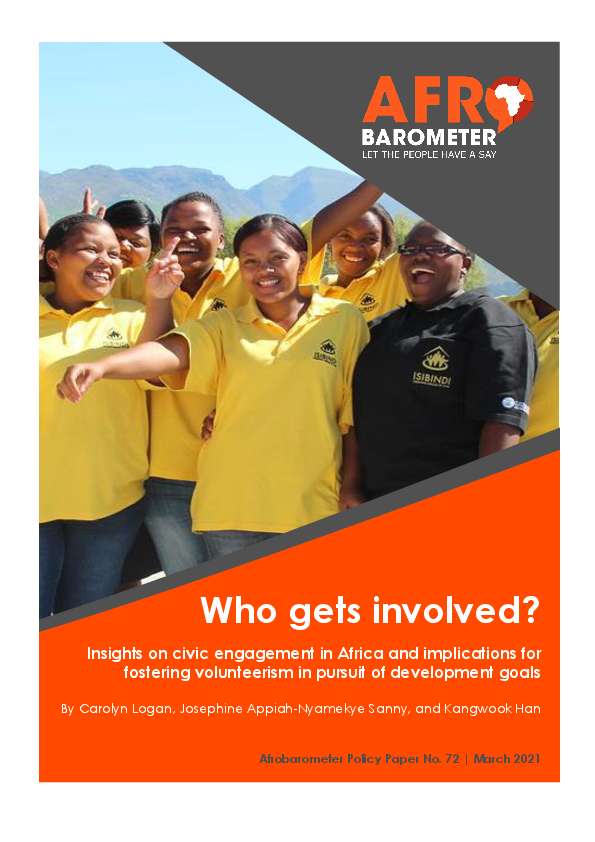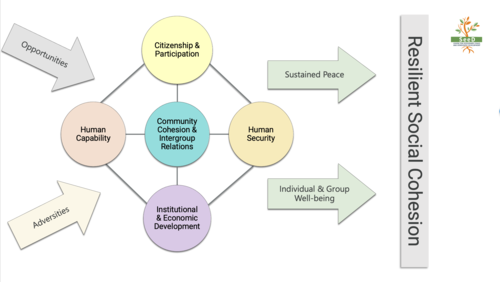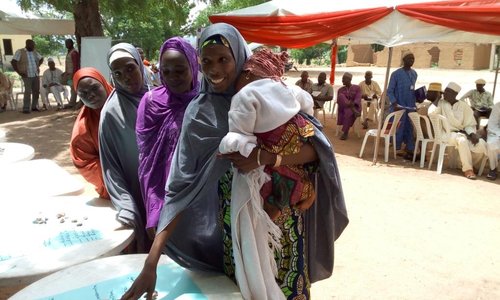Who gets involved? Insights on civic engagement in Africa and implications for fostering volunteerism
Key facts
Intergroup relations
Participation
Orientation towards the common good
Shared values
Cooperation
Political institutions & governance
Development cooperation
Summary
Achieving the Sustainable Development Goals (SDGs) and other development objectives requires the joint efforts of citizens and their governments. While some citizens may serve in formal roles, large numbers will be engaged in a voluntary capacity. Understanding who engages in pursuit of the public good, under what circumstances, and why provides a foundation on which to more effectively promote civic engagement and volunteerism.
Advocates of volunteerism in Africa have been plagued by a lack of data on who engages in voluntary service, how much they contribute, in what formats, and what the outcomes are. This paper, building on a shortlisted proposal for the United Nations Volunteers Innovation Challenge Fund on Measuring Volunteering and the 2030 Agenda, explores Afrobarometer survey data on civic engagement in 34 African countries. In addition to membership in religious and civic organizations, it examines citizens' contact with political and community leaders, their attendance at community meetings, and their efforts to join with others to address issues or express their views – all types of civic engagement that are the cornerstone of volunteerism to solve problems and improve lives.
Our analysis identifies several factors that shape voluntary civic engagement, from socio- emographic ones such as education and wealth to citizens’ socio-political engagement, their personal sense of efficacy, and their overall trust in their governments. Country contexts are important, as we see wide cross-country differences in levels of volunteerism. Among other aspects, wealthier countries, on average, report less volunteerism, while democracies report more. We have found evidence that confronting unmet needs – whether one’s own or those of others – is a major motivating factor of voluntary engagement. These findings suggest a number of opportunities and entry points for increasing citizen engagement.




